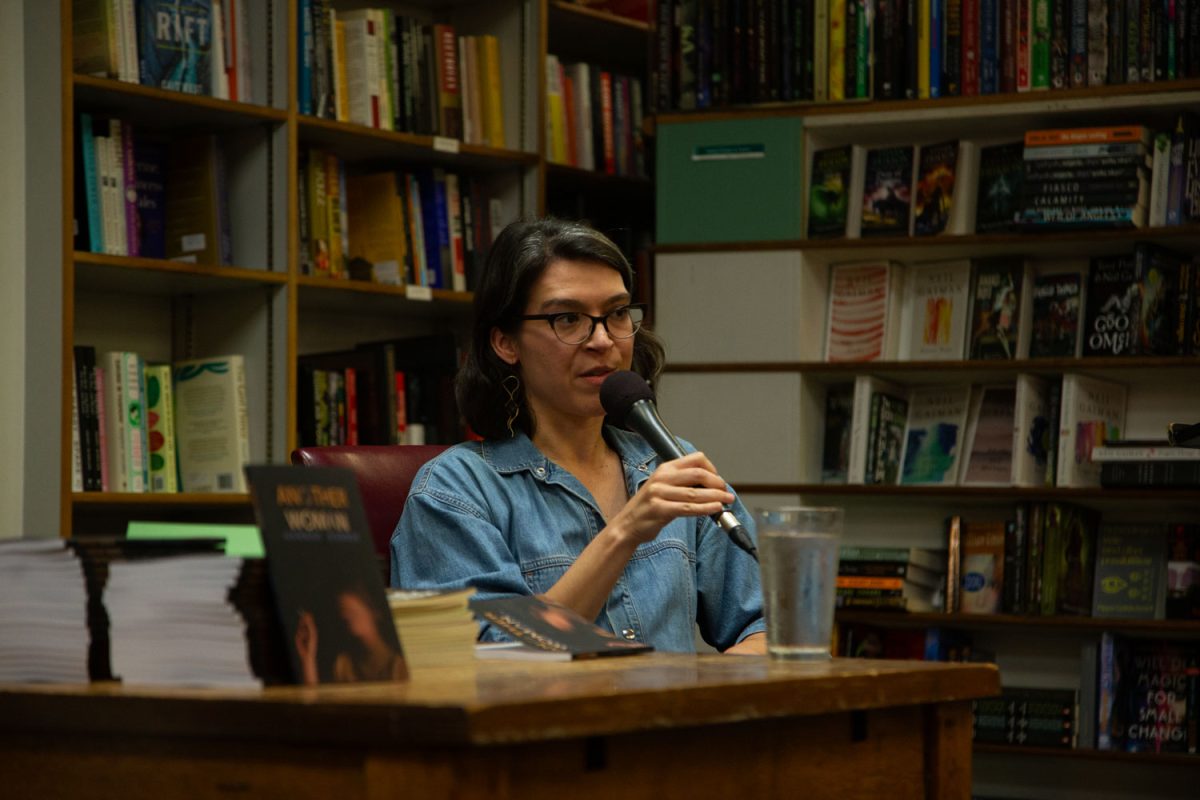Hannah Bonner is a recent postgraduate student at the University of Iowa’s Creative Nonfiction MFA program. She has worked as a film and literary critic in addition to her writing career. Bonner is a 2023-24 National Book Critics Circle Emerging Critic Fellow and the poetry editor for Brink.
Her newly released debut collection of poems, “Another Woman”, follows a trajectory of the rise and fall of a relationship, paralleling the seasons: summer, fall, winter, and spring. Throughout the book, several pop culture and mythological figures are brought to life, bringing new perspectives to the overarching story.
This interview was edited for length and clarity.
The Daily Iowan: What was your writing process? Were these poems written recently?
Bonner: You know, it’s funny, because I was looking at the book, and I think there are three poems I wrote in college that are in the collections. But most of the book I wrote during the winter of 2020 — amid the height of the pandemic lockdown. The writing process for that was one of the most pleasurable writing experiences I’ve ever had. I would go on these long, night walks in the evenings around 10 p.m., and then I would come home and write until like 2 in the morning.
I think what was pleasurable about that process was that I never expected any of these poems to be read, published, or seen because there was still so much uncertainty about the future then. So, as I was writing, I wasn’t concerned with the audience.
Instead, I would ask myself “How can I make this the best poem it can be for me? How can I get to a point where I’m content with this poem or excited about what this poem is doing?” It felt like I was writing for myself, first and foremost. And I think especially with school, you always have an audience, and there was something very liberating about letting go of that for a while.
What is your relationship with the characters in your book?
I think there’s something about characters from things like myths and pop culture or archetypal characters that allow us to better express heightened emotional states in ways that might feel overwrought if you’re just writing from the perspective of the eye.
I think adopting the persona of these women allows me to bring to the floor more anger, desire, heartache, or pain. I think they become containers in which you can express more extreme emotional states. It feels a bit like acting, like I’m costuming myself in these characters and expressing what I think they would be thinking or feeling.
How does this book reflect where you are as a writer right now?
It’s funny, because I completed the book in 2022, so it feels a bit like a time capsule to me. It’s interesting because there’s always a gap between when you finish a project and when it comes out. And so the work I’m currently doing feels pretty different from this book.
I think I’ll always write about femininity and the natural world, but in terms of form — of how I write poetry now — that has shifted a bit. I think my poetry now is a bit sparser and more terse. There’s more attention to the economy of language. I think this collection was very lyrical.
What themes were you thinking about while writing the book?
The book focuses on the composite nature of self. So many factors make up an identity, so that’s part of the reason why I write from the voices of other women from history or mythology in the book. And I think that this notion of “another woman” instead of “the other woman” highlights how many factors, voices, influences, and relationships make up a single identity, and that was something I was interested in expressing.
Did you write a lot in your childhood? Is this something you’ve been pursuing for a while?
Yeah, I wanted to write for as long as I can remember. I was thinking the other day about publishing this book [that] this is exactly the life that I dreamed about for myself when I was nine. I got the life that I wanted, and I don’t know if a lot of people can say that. So, I feel lucky.
Did you feel a connection to your younger self while writing?
I did. I think about how often I would sit outside and write poems as a kid, athat’s what I was doing as I wrote this book. I had the space and time to do it, in part because of the pandemic. Partly just because of where I was in my life and so, yeah, actually, it did in some ways feel like being a kid again, just getting to play and getting to learn. There was a lot of work involved, but there was a lot of work that just felt like play.



